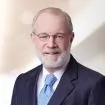On November 10, 2021, in prepared remarks before a meeting sponsored by the Institutional Limited Partners Association (ILPA), Securities and Exchange Commission (SEC) Chair Gary Gensler presented his views on the role and importance of private equity funds and hedge funds (private funds) in the U.S. capital markets, and noted certain areas of further consideration by the staff.
Chair Gensler began his remarks by reviewing the evolution of the federal securities laws as they apply to private funds, noting that it was not until 2010 and the Dodd-Frank Act that private fund advisers were brought fully under the Advisers Act. The Act gave the SEC authority to "seek investment adviser disclosures and to prohibit investment adviser conflicts of interest, sales practices, and compensation schemes contrary to investor protection," and require certain advisers to private funds to report on Form PF.
Chair Gensler then suggested that the SEC would consider extending further the reach of the federal securities laws into the operation of private funds, expressing concern for the protection of private fund limited partners (LPs), which he noted include not only "wealthy individuals" but also retirement plans, pension plans and endowments for the benefit of "teachers, firefighters, municipal workers, students, and professors."
Chair Gensler listed five specific areas in which he has asked the SEC staff to consider recommendations to "bring more sunshine and competition to the private funds space."
- Fees and Expenses. Chair Gensler stated his view that, unlike mutual funds, which have seen their expenses driven down by competition, private fund fees are "not that different than when I was on Wall Street," and "I think we can promote additional transparency around fees and expenses to fund investors."
- Side Letters. Chair Gensler stated that the practice of private funds entering into side letters with certain limited partners "can create an uneven playing field," and asked the staff to consider recommendations for increasing the transparency of such agreements, or perhaps prohibiting side letters from containing certain provisions.
- Performance Metrics. Chair Gensler noted the debate over whether private funds outperform the public markets after fees and stated that "there may be benefits to fund investors to increasing transparency of the performance metrics."
- Fiduciary Duties and Conflicts of Interest. Chair Gensler was adamant that the "federal fiduciary duty [under the Investment Advisers Act] may not be waived," and asked the staff "how we can better mitigate the effects of conflicts of interest between general partners, their affiliates, and investors," which he stated could include considering the need for prohibitions on certain conflicts and practices.
- Amendments to Form PF. After noting that the SEC has "learned a lot" from the information collected on Form PF, Chair Gensler stated that "we ought to consider whether more granular or timelier information would be useful in [circumstances similar to the March 2020 disruption in the Treasury market]."
Some of these concerns line up with policy positions ILPA has promoted and his speech suggests that Chairman Gensler may be responding to them. For example, in a 2019 position paper, ILPA: objected to state law permitting private fund participants to contractually agree to limit the general partner's (GP) fiduciary obligations to the fund; urged development of a uniform fee and expense reporting template for private equity funds; and urged the SEC to give LPs access to SEC deficiency letters issued to private fund advisers, and provide LPs greater ability to communicate with each other. In a 2018 letter to then SEC Chairman Clayton, ILPA urged the SEC to require GPs to share their Form PF filings (which are filed with the SEC on a confidential basis) with investors and prospective investors in private funds (essentially making them public).
If the staff's consideration of these areas results in proposed rulemakings, it could constitute a significant expansion of the SEC's regulation of private funds and their advisers. Under the leadership of Chair Gensler, the SEC may begin to take an active role in influencing the balance of negotiating power between GPs and LPs and thus the terms of private fund limited partnership agreements. Private fund advisers, sponsors and limited partners should carefully monitor future developments in this space.
SEC Chair Gensler Signals SEC Policies For Private Funds
The content of this article is intended to provide a general guide to the subject matter. Specialist advice should be sought about your specific circumstances.


